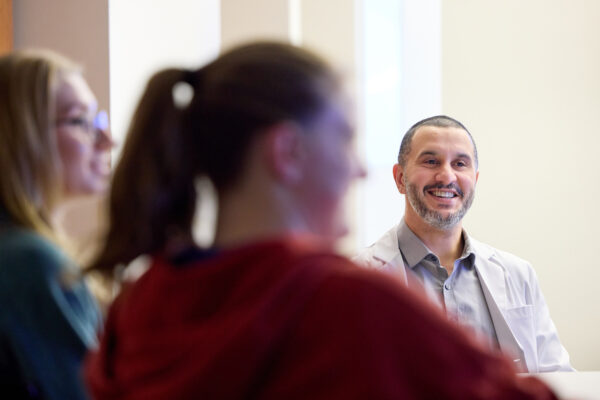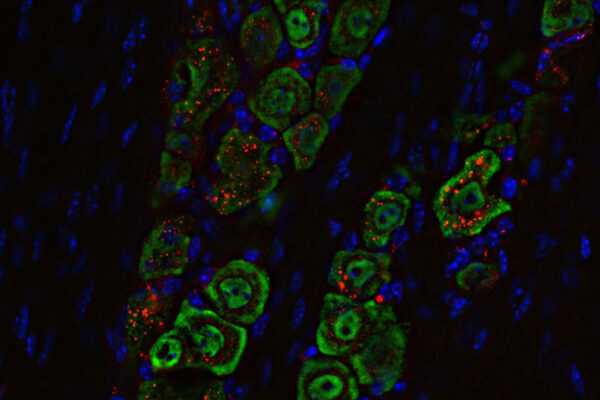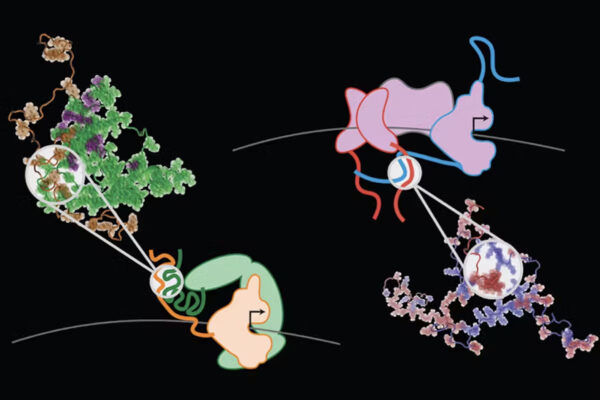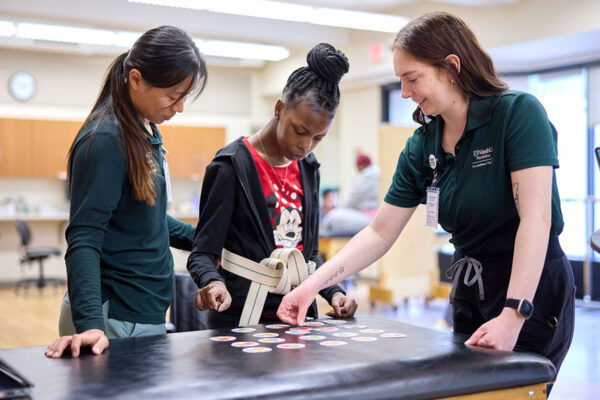Halvorsen receives gerontology leadership award
Cal J. Halvorsen, an associate professor at the Brown School at Washington University in St. Louis, has received the Leadership Award from the Association for Gerontology Education in Social Work.
Amjad Musleh
In his role as head student coach at WashU Medicine, Amjad Musleh, MD, an associate professor of anesthesiology and of emergency medicine, mentors aspiring physicians in compassionate care.
Alternative sweetener sorbitol linked to liver disease
A study from researchers at Washington University in St. Louis has found connections between the alternative sweetener sorbitol and liver disease.
Nasal drops fight brain tumors noninvasively
Researchers at WashU Medicine have developed a nano-sized medicine delivered through the nose that boosts the anti-cancer immune response and successfully eliminates deadly brain tumors in mice.
Understanding intrinsically disordered protein regions and their roles in cancer
Researchers at Washington University in St. Louis have developed an algorithm to decode the language of intrinsically disordered regions of proteins and their roles in human cancers.
Timing may be key to effective cancer treatments
Researchers at Washington University in St. Louis found that the timing of biopsy can affect how doctors diagnose tumors and when those cancers may be more sensitive to chemotherapy.
WashU Medicine students treat patients at Pro Bono Health Clinic
The WashU Medicine Pro Bono Health Clinic offers free occupational therapy, physical therapy and medical services to uninsured community members in the St. Louis area.
Creed to study dopamine system changes in chronic nerve pain
Meaghan Creed, an associate professor of anesthesiology at WashU Medicine, has received a $3.3 million five-year grant from the National Institute on Drug Abuse to study dopamine system changes underlying depression symptoms in people with chronic neuropathic pain.
Low-wage workers face significant barriers accessing SNAP, Medicaid
Millions of Americans rely on public assistance programs such as the Supplemental Nutrition Assistance Program and Medicaid to meet basic needs for food and health care. Yet a new study from the Brown School at Washington University in St. Louis finds that the very systems designed to help are often the hardest to navigate — especially for the people who need them most.
Missouri’s health coverage is shifting fast, WashU analysis finds
New findings reveal how pandemic-era policies and widespread Medicaid removals fueled a sharp rise in Affordable Care Act enrollment.
Older Stories









